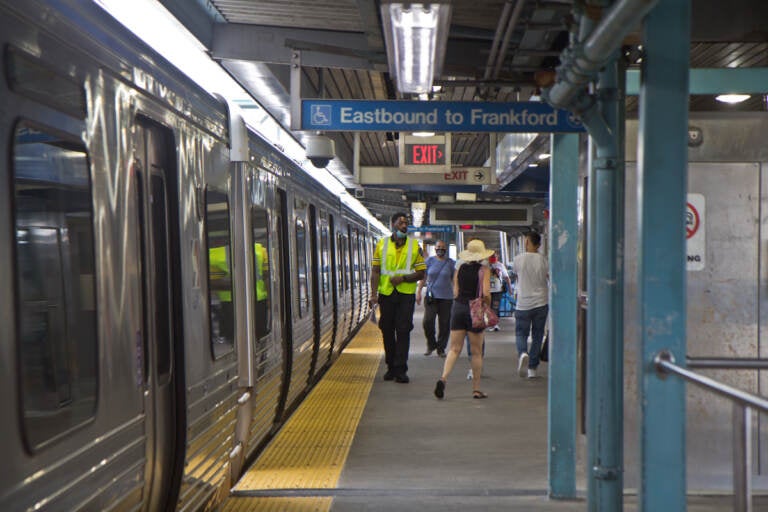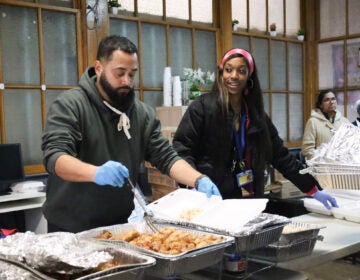The bystander effect
Why didn't passengers on a Philadelphia train intervene when a woman was being raped? We examine the bystander effect and why people fail to help.
Listen 49:00
A transit security officer works on the platform of the Girard stop of the Market-Frankford Line train on July 15, 2021. (Kimberly Paynter/WHYY)
Last week a man was charged with raping a woman on a Philadelphia train in front of other passengers. No one tried to stop the attack, raising the question of why the bystanders didn’t intervene, and why, in many situations, witnesses don’t step in. In this hour, we examine the bystander effect, the psychology behind why we fail to act when we see a problematic event, and how to speak up and help others in all kinds of difficult situations – including racial or sexual harassment and physical assault. Our guest is Amherst College professor of psychology CATHERINE SANDERSON, author of Why We Act: Turning Bystanders into Moral Rebels. We’re also joined by DAX VALDES with Hollaback!, an organization which aims to end harassment by training people to intervene.
WHYY is your source for fact-based, in-depth journalism and information. As a nonprofit organization, we rely on financial support from readers like you. Please give today.





